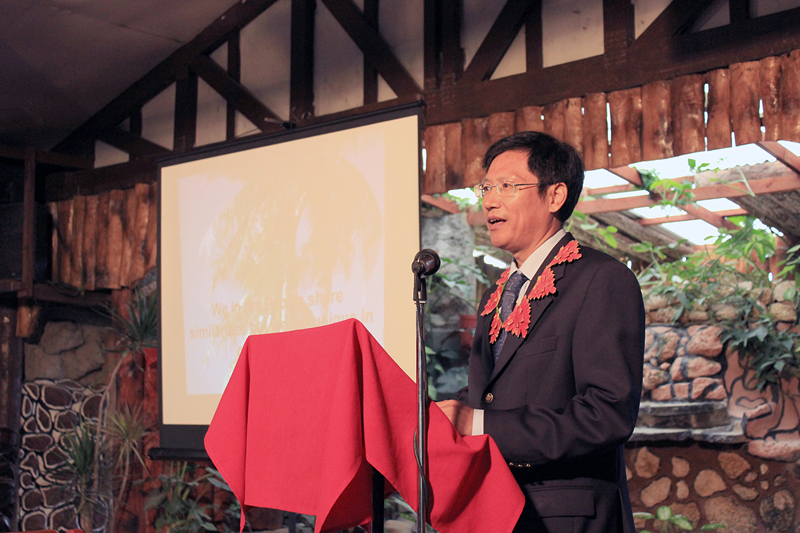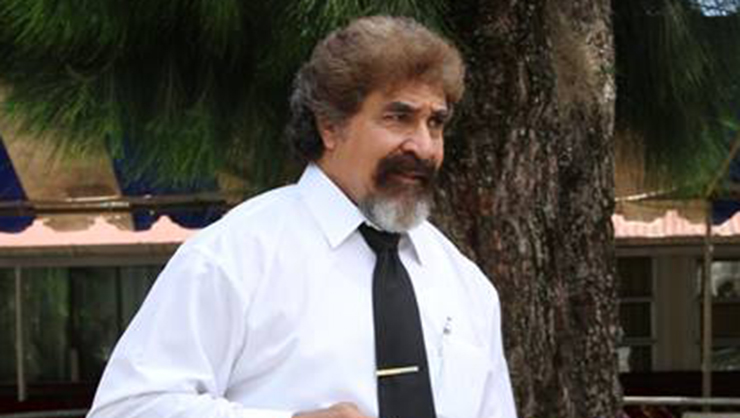Last month Kaniva News visited China at the invitation of the Chinese Communist Party Centre for International Exchanges.
In this series of reports, we bring you China as they see themselves.
Based on documents provided by our hosts, this is the official view of China: A rising giant with an enormous population, enormous potential, but serious problems with an acute lack of resources, facing internal problems and often overshadowed by a strong sense of grievance at the way China has been treated in the past.
With China active throughout the region and often in competition with other powers for influence and prestige, it is important that we try to understand China and how they see themselves.
In this second of three reports we look at the Communist Party and its role in China.
The ruling party
The Chinese Communist Party is the ruling party. There are eight other parties: The Revolutionary Committee of the Chinese Kuomintang, China Democratic League, China National Democratic Construction Association, China Association for Promoting Democracy, Chinese Peasants and Workers Democratic Party, China Zhi Gong Party, and the Jiu San Society.
The constitution and law is the fundamental norm governing the acts of the CPC and other political parties.
The Chinese People’s Political Consultative Conference (CPPCC) is an organization of the patriotic United Front of the Chinese people.
It is also an important organ for the development of multi- party cooperation and political consultation led by the CPC, and an important forum for promoting socialist democracy in the Chinese political system. Its main functions: political consultation, democratic supervision and political advisory.
The National People’s Congress
The National People’s Congress of the People’s Republic of China is the highest organ of state power. Its permanent body is the Standing Committee of the National People’s Congress.
The NPC has legislative powers, appointment and dismissal powers, the power to decide on major national affairs, supervision power, and other powers that it should have.
Its 2987 deputies are elected for five years and meets in session once a year.
The term of the current congress, the 12th, runs until 2018.
A session of the NPC is held in the first quarter of every year and is convened by its standing committee.
Regional ethnic autonomy
Regional Ethnic Autonomy means organs of self-government are established in areas where various ethnic minorities live in compact communities. Ethnic minorities rule themselves and manage affairs within their own groups. China has five autonomous regions, 30 autonomous prefectures, 120 autonomous counties/banners and more than 1100 autonomous townships.
Autonomous localities have the right to enact autonomous regulations and separate regulations in light of the political, economic and cultural characteristics of the ethnic group or ethnic groups in the areas concerned; autonomy in using locally raised money, managing local economic development; managing local education, science and technology, culture, health care and sports and in protecting and developing ethnic culture.
The country takes vigorous efforts to train ethnic-minority cadres and professionals in institutions of higher learning, ethnic universities/colleges, and training institutes for ethnic-minority carders. The central government provides financial and material support to autonomous areas, and coastal regions offer individual assistance to ethnic regions to promote local economic and cultural development. The country also gives special privileges to ethnic minorities in regards to policies on education and childbearing.
Community Level Self-governance
Under this system urban residents or villagers elect a residents’ or village committee to conduct self- governance, self-education, self-service and self-supervision. This system has gradually taken shape since the founding of the People’s Republic of China, and appeared in cities first. The 17th CPC National Congress wrote the system into its party congress report for the first time, making it part of a China-specific political system along with the People’s Congress System.
Under this system urban resident’s committees, or rural village committees can be established to allow residents to undertake self-education, self-governance and self-service. Committees consist of a Director, Deputy Director/s, and committee members elected by residents.
Sub-committees can be set up to run public affairs and public service programmes in the community, to mediate civil disputes, help government departments to safeguard public security, promote good ethics and public morality and tell the government about the complaints, suggestions and requirements of the community members.
Philosophy of the CPC
This is how the Party’s Centre for International Exchanges, which organised our visit to China, describes the philosophy of the Communist Party:
“A clear and correct guiding philosophy is essential, one that must suit national conditions and meet the people’s aspirations.
“No matter how progressive the CPC is, it must have comrades and allies. Thus a wide united front is needed.
“While being a ruling party, the CPC must concentrate on economic development. Our top priority must be developing the country, and development is key to solving all the problems in China.
“The CPC is founded for the interests of the public and it governs for the people. It must always stay in close touch with the people. It must always enhance support from the classes it represents, and seek to gain greater public support.
“Scientific, democratic and law-based governance. The party shall always seek to improve the way it leads and governs.
“It must strengthen its party building efforts in a reform-oriented spirit, and conduct party building in a more scientific, institutionalized and standardized way. Strict party discipline must be enforced. The party must always strive to become more creative, cohesive and able.”
Editor’s Note: Our next article on this will be – Looking to the future
The main points
- The Chinese Communist Party is the ruling party.
- The National People’s Congress of the People’s Republic of China is the highest organ of state power.
- The NPC has legislative powers, appointment and dismissal powers, the power to decide on major national affairs, supervision power, and other powers that it should have.
- Its 2987 deputies are elected for five years.
READ MORE:
China as they see themselves: Its people, history and economy
For more information
China president slams ‘conspiracies’ in Communist Party
The Communist Party of China (China Today)







